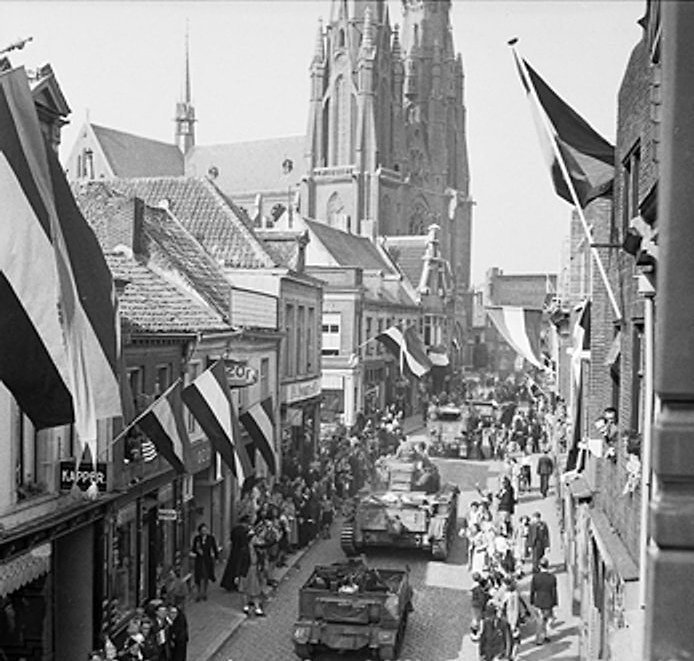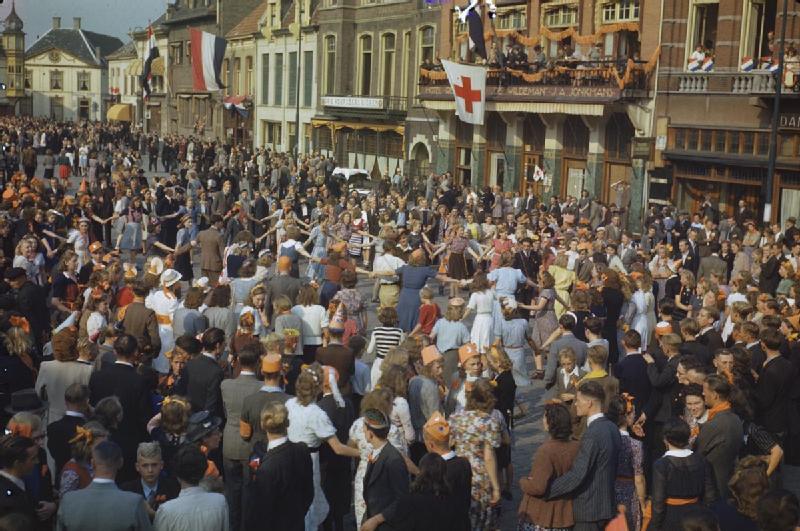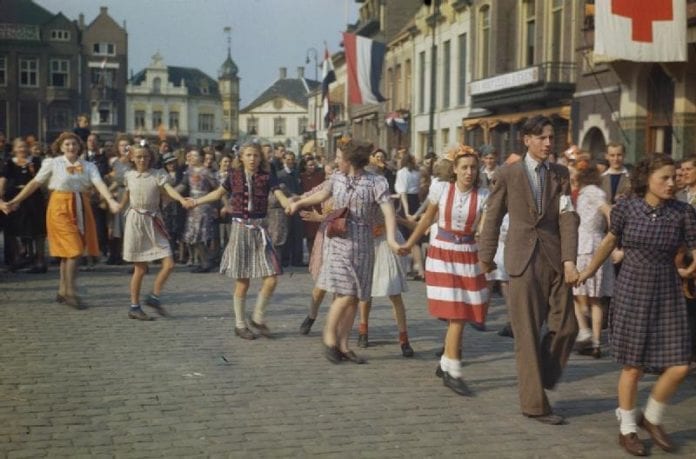Every year on May 5th, the Dutch celebrate the freedom that they live in. Named Bevrijdingsdag (‘Liberation Day’), the date marks the end of the Nazi occupation of The Netherlands in 1945, now seventy years ago. The end of World War II and the following decades of political and social change in Europe and the rest of the world resulted in the freedom that we now have: a freedom wherein people are free to act and think and express themselves as they want to.
It is difficult, if not impossible, for those of us who have never experienced war and oppression first-hand to truly understand how special this freedom is. When it comes to the horrors of war, the vast majority of this country is all theory and no practice. Especially now that the amount of people who have experienced World War II is rapidly shrinking, it is important to emphasize how privileged we are. As the saying goes: “Freedom is not free.”

So how they the Dutch make an effort to keep the past alive? It should go without saying that there will be festivals in all major cities. But Bevrijdingsdag is not just a matter of people getting free entertainment: there are also projects that will actively involve the new generation. And yesterday’s 4th of May remembrance, with young people reading and telling about the deeds of their elders in the war, showed us that too can be powerful.

Of course there’s enough cynicism to go around: for a lot of us, May 5th is just about getting a day off from work every five years and going to free concerts. Every year again, there is also the discussion about how and who we commemorate on May 4th, Dodenherdenking (‘Remembrance of the Dead’). We at DutchReview certainly have been critical of the way in which we deal with the past. And this year there was the issue of whether it was okay to remember the refugees of war in Amsterdam on the 4th of May.
Canadian liberators rolling into Leiden:
Still, there is no question here that we all agree on the importance of paying respect to those who lost their lives because of tyranny. No matter if we disagree about politics or ethics, we all want to keep and share the good life that we can have here.
As always, looking back into the past makes us think about where we are today and where we might be tomorrow. The wealth and freedom that we have in the West makes it tempting to think that we are ‘done’, as if we are “living in the holidays of history”.


The challenges that freedom faces today come in many forms: whether it’s violation of human rights by governments, social and political unrest in Eastern-Europe and the Middle-East, or concerns over privacy and equality. Though the world sometimes seems like a terrible place, fact is that violence is at an all-time low. It’s our job to make sure that this trend continues, and for that reason, every year we will honor the dead on May 4th and celebrate our freedom on May 5th.
Be sure to check out all the events happening on Liberation Day in the Netherlands, because there are quite a few! How are you going spend the day? Let us know in the comments below!
Feat Image Source: Remco Platjes/wikipedia

Coming from Canada to celebrate with you. My Uncle served in Holland and travelled back for the 70th Anniversary to the towns he remembered (and posing at two grave sites of young men that had joined the war with him). He fondly talked about his trip back and how welcome he felt and how proud he was to serve such a great nation! He passed away in his 100th year so we are coming to represent him.
Looking forward to this trip!!! (and hoping we can figure out how to get to the sites without a car).